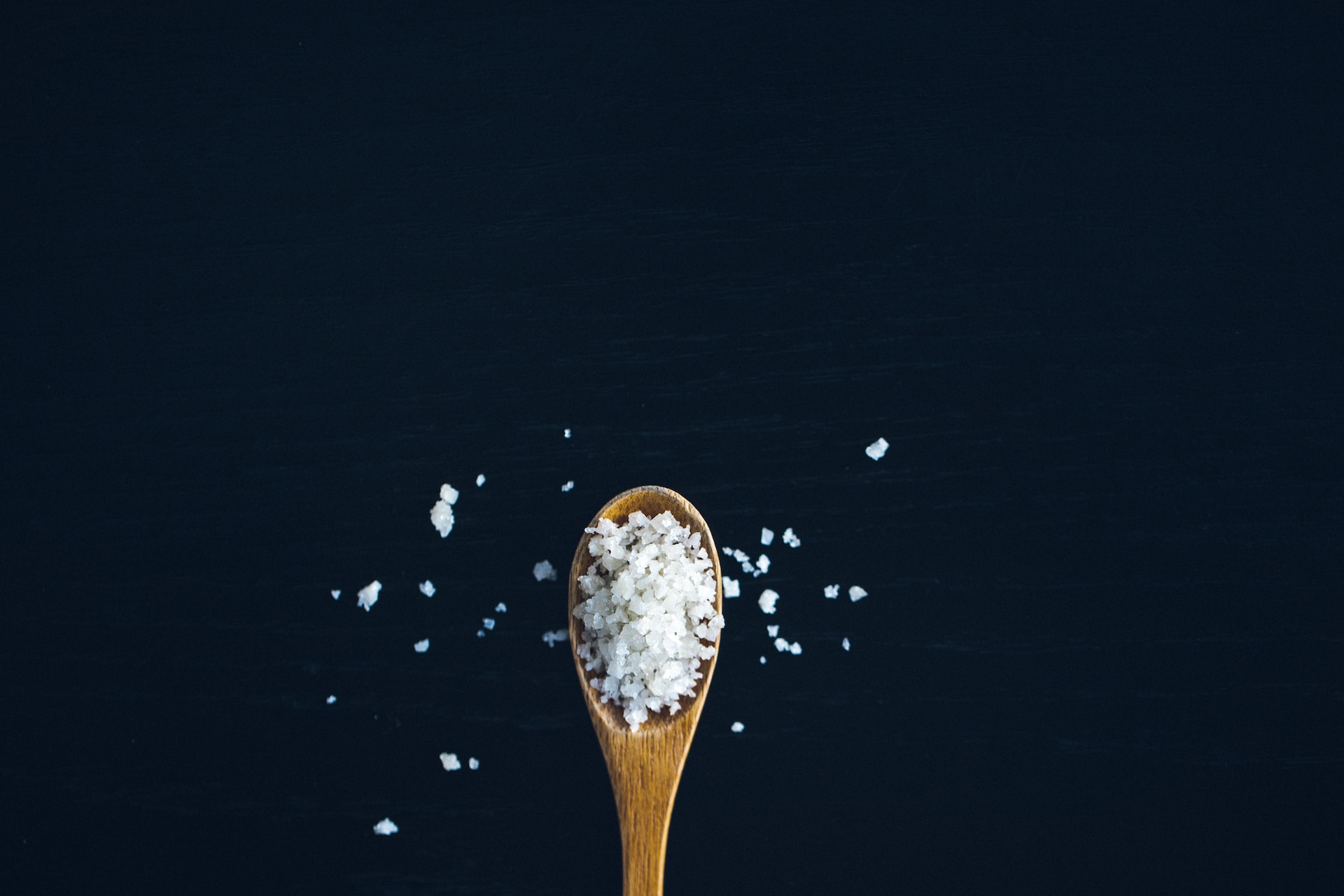
Sea salt is a popular ingredient used in cooking and a staple in many kitchens around the world. Apart from its distinctive flavor, sea salt also offers a myriad of health benefits that make it a preferable choice over regular table salt.
In this article, we will explore 18 fascinating facts about sea salt, shedding light on its origin, composition, health benefits, and culinary uses. Whether you are a food enthusiast or interested in improving your overall well-being, you will find some intriguing insights about sea salt that may change the way you view and use this versatile ingredient.
So, let’s dive in and discover the wonders of sea salt!
Key Takeaways:
- Sea salt is a natural product of the sea, rich in minerals and used in cooking, beauty products, and traditional medicine. It enhances flavors and has healing properties, making it a versatile and cherished ingredient.
- Sea salt comes in various types, each with its unique flavor profile and texture. It contains less sodium than table salt, has healing properties, and is a staple in many cuisines worldwide.
Sea Salt is a Product of the Sea
As the name suggests, sea salt is obtained by evaporating seawater. It is formed through the natural process of saltwater evaporation, leaving behind the crystallized salt.
There are Different Types of Sea Salt
Sea salt comes in various forms such as fleur de sel, Himalayan pink salt, Celtic sea salt, and many more. Each type has its unique flavor profile and texture.
Sea Salt is Rich in Minerals
Unlike regular table salt, sea salt retains minerals like magnesium, calcium, potassium, and iodine, which are essential for our body’s proper functioning.
Sea Salt Enhances the Flavor of Food
The natural minerals present in sea salt contribute to a more complex and vibrant taste, elevating the flavors of dishes from savory to sweet.
Sea Salt Contains Less Sodium than Table Salt
Contrary to popular belief, sea salt actually contains slightly less sodium than table salt. However, both should be consumed in moderation for a balanced diet.
Sea Salt can be Harvested by Hand
Certain types of sea salt, like fleur de sel, are still harvested by hand using traditional methods, making it a labor-intensive and artisanal product.
Sea Salt has Healing Properties
The minerals present in sea salt have been known to provide therapeutic benefits such as aiding in digestion, improving skin conditions, and promoting relaxation.
Sea Salt is Used in Spa Treatments
Due to its healing properties, sea salt is often used in spa treatments like scrubs and baths to exfoliate the skin, detoxify the body, and rejuvenate the senses.
Sea Salt is Versatile in Cooking
Sea salt can be used in both savory and sweet dishes. It adds depth to roasted vegetables and meats, enhances chocolate desserts, and balances the sweetness in baked goods.
Sea Salt can Help Preserve Food
Historically, sea salt has been used as a natural preservative for food due to its ability to draw moisture out, inhibiting the growth of bacteria and preventing spoilage.
Sea Salt is Essential for Pickling
When pickling vegetables, sea salt is a crucial ingredient as it helps maintain the texture, flavor, and crispness of the preserved produce.
Sea Salt is Used in Beauty Products
Sea salt is a popular ingredient in beauty products like exfoliating scrubs, bath salts, and hair sprays. It helps promote healthy skin, improves circulation, and adds volume to hair.
Sea Salt Ice Cream is a Delight
A unique and creamy treat, sea salt ice cream combines the sweetness of ice cream with a subtle savory note, creating a delightful flavor contrast.
Sea Salt Can Help with Sore Throats
Gargling with warm water and sea salt mixture can provide temporary relief from sore throats by reducing inflammation and killing bacteria.
Sea Salt is Used in Traditional Medicine
In certain cultures, sea salt has been used for centuries in traditional medicine practices to promote healing, improve digestion, and boost overall well-being.
Sea Salt is Sourced from Different Parts of the World
Sea salt is harvested from seas and oceans worldwide, with each region imparting its unique characteristics and flavors to the salt.
Sea Salt can Help Tenderize Meat
Using a sea salt brine can help tenderize tougher cuts of meat by allowing the salt to penetrate the muscle fibers, resulting in more tender and flavorful meat.
Sea Salt is a Staple in Many Cuisines
From Mediterranean to Asian, sea salt is a staple in many culinary traditions around the world. It is valued for its ability to enhance and balance flavors in diverse dishes.
In conclusion, sea salt is not just a pantry staple; it is a versatile ingredient that adds depth and complexity to various recipes. With its unique blend of minerals and its connection to nature, sea salt continues to be cherished for its culinary and therapeutic properties. So the next time you reach for that pinch of sea salt, remember the 18 fascinating facts that make this ingredient truly exceptional!
Conclusion
Sea salt is not only a staple ingredient in our kitchens, but it also boasts a number of impressive health benefits. From its rich mineral content to its ability to improve skin health, sea salt is truly a versatile and valuable ingredient.
By using sea salt in moderation and understanding its unique properties, you can enhance the flavor of your dishes and reap the rewards of its numerous health benefits. So the next time you reach for that salt shaker, consider opting for sea salt and experience its natural goodness for yourself!
FAQs
Q: Is sea salt better than table salt?
A: Sea salt and table salt have slightly different flavors and textures, but from a nutritional standpoint, sea salt generally contains more trace minerals and is less processed than table salt.
Q: Can I use sea salt for baking?
A: Absolutely! Sea salt can be used in baking just like any other type of salt. It can enhance the flavors of your baked goods and add a subtle touch of natural sweetness.
Q: Is sea salt iodized?
A: While some brands of sea salt are iodized, it’s important to check the packaging to ensure iodine is added. If you’re concerned about your iodine intake, it’s best to opt for iodized table salt.
Q: How should I store my sea salt?
A: To keep your sea salt fresh and free from clumps, it’s best to store it in an airtight container in a cool, dry place away from direct sunlight.
Q: Can sea salt help with skin conditions?
A: Sea salt has natural antibacterial and antifungal properties, which can help alleviate certain skin conditions like acne or eczema. However, it’s always advised to consult a dermatologist before using sea salt for any skin issues.
Hungry for more salty goodness? Spritz your hair with the best sea salt sprays designed specifically for men's styling needs. Curious about the nutritional value of your favorite snacks? Check out the facts behind Boulangerie Grissol's olive oil and sea salt baguettes, as well as Pulp Pantry's veggie chips. Dive deeper into the world of sea salt and satisfy your cravings for knowledge and flavor!
Was this page helpful?
Our commitment to delivering trustworthy and engaging content is at the heart of what we do. Each fact on our site is contributed by real users like you, bringing a wealth of diverse insights and information. To ensure the highest standards of accuracy and reliability, our dedicated editors meticulously review each submission. This process guarantees that the facts we share are not only fascinating but also credible. Trust in our commitment to quality and authenticity as you explore and learn with us.


